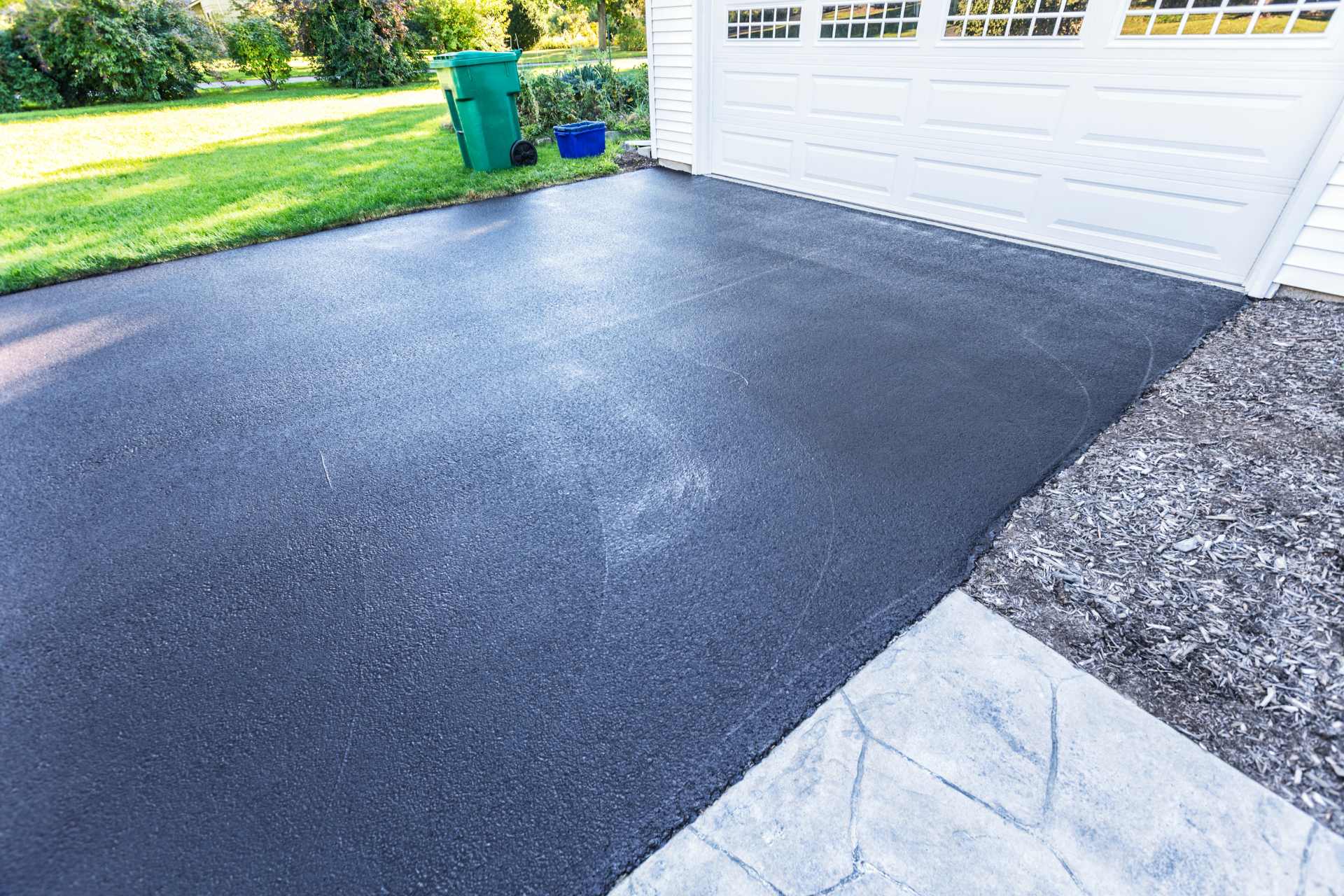Asphalt driveways, while durable and cost-effective, are not immune to wear and tear. Over time, various issues may arise that can compromise their appearance and functionality.
Asphalt driveways, while durable and cost-effective, are not immune to wear and tear. Over time, various issues may arise that can compromise their appearance and functionality. Here are five common asphalt driveway problems and practical solutions to address them:
- Cracks: Cracks are one of the most prevalent issues with asphalt driveways, often caused by fluctuations in temperature, moisture, or heavy vehicle traffic. If left unattended, cracks can worsen and lead to more significant damage. To fix them, start by cleaning the crack with a wire brush to remove debris and vegetation. Then, fill the crack with asphalt crack filler or patching compound, ensuring it’s level with the surrounding surface. For larger cracks or potholes, consider professional repairs.
- Potholes: Potholes can develop when water seeps into small cracks in the asphalt, freezing and expanding during colder months, and eventually causing the pavement to break apart. To repair potholes, remove any loose debris and clean the area thoroughly. Fill the hole with cold patch asphalt, compacting it with a tamper or shovel until it’s level with the surrounding surface. For more extensive damage, consult a paving contractor.
- Fading Color: Over time, exposure to sunlight and weather elements can cause asphalt driveways to lose their vibrant black color, resulting in a dull, faded appearance. While fading doesn’t affect the structural integrity of the pavement, it can detract from the overall curb appeal. To restore the color of your asphalt driveway, consider applying a sealcoat. Sealcoating not only enhances the appearance but also provides a protective barrier against moisture, UV rays, and chemicals.
- Oil Stains: Oil leaks from vehicles can leave unsightly stains on your asphalt driveway, detracting from its aesthetic appeal. Promptly addressing oil stains is crucial to prevent them from penetrating the surface and causing permanent damage. To remove oil stains, sprinkle absorbent materials such as cat litter or baking soda over the affected area to absorb the oil. Then, scrub the stain with a degreaser or detergent and rinse thoroughly with water. Repeat the process if necessary until the stain is no longer visible.
- Root Damage: Tree roots can pose a significant threat to asphalt driveways, as they have the potential to push through the pavement, causing cracks and upheaval. To prevent root damage, avoid planting trees or large shrubs near the driveway, especially species known for aggressive root systems. If roots have already infiltrated the pavement, consult a professional to assess the extent of the damage and implement appropriate measures, such as root pruning or driveway repair.
By addressing these common asphalt driveway problems promptly and effectively, whether through DIY methods or by hiring a professional paving contractor, you can prolong the lifespan of your pavement and maintain its appearance and functionality for years to come. Regular maintenance and timely repairs, coupled with expert guidance when needed, are key to preserving the integrity of your driveway and enhancing your property’s curb appeal.

